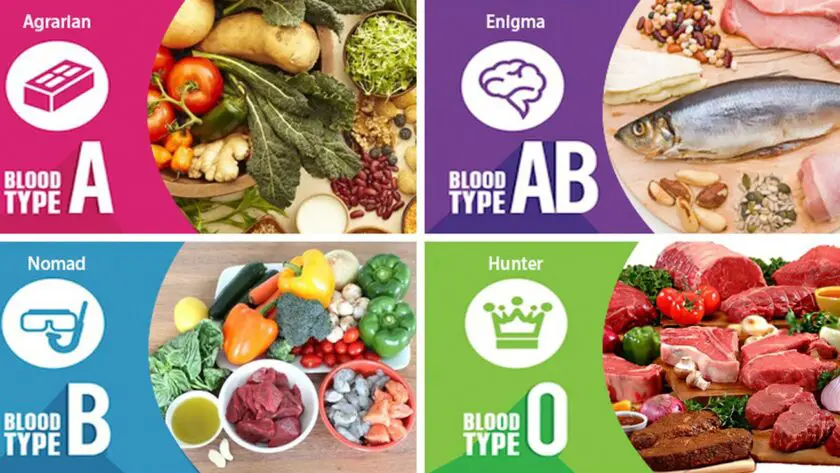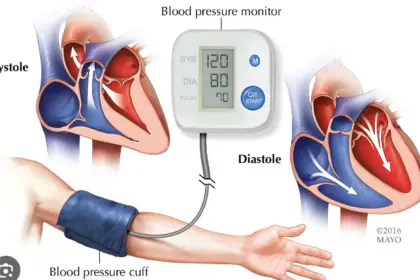Your blood type may play a bigger role in your health than you realize. Growing research suggests that people with different blood types may benefit from tailored diets and lifestyle changes based on their type. A diet that works well for someone who is type A, for example, may not provide the same benefits for someone who is type O.
Recent studies have delved deeper into these connections between blood type and diet. They indicate that your blood type impacts how you metabolize fats and carbs, your risk for certain diseases, and even your personality traits. Using your blood type as a guide for eating and other lifestyle factors is gaining traction as a way to optimize wellness.
Proponents of “blood type diets” argue that you can take preventive steps by eating more of certain foods and avoiding others. A heart-healthy diet for a type O may look quite different from an optimal diet for a type B, for example. While some experts remain skeptical, extensive research continues to unveil why your blood type matters.
In this article, we’ll explain what the latest science says about how your blood type affects your dietary needs. We’ll go over the best foods to eat and limit for each blood type. You’ll learn practical tips to eat right for your type to enhance health and lower disease risk. Read on to discover what you should be eating according to the intriguing connection between your blood type and diet.
The Latest Scientific Data On The Blood Type Diet
The idea that blood type should guide your dietary choices is gaining interest, but the science behind “blood type diets” remains preliminary. Proponents argue that blood types O, A, B, and AB metabolize foods differently and should eat tailored diets. Some studies suggest associations between blood type and disease risks that could be mitigated through dietary changes.
For example, research indicates type O’s may digest meat more efficiently and do better on low-carb diets, while type A’s see benefits from vegetarian diets rich in fruits, vegetables and beans. However, experts caution more rigorous, large-scale studies over extended periods are needed to verify these theorized connections between blood type, diet patterns and health outcomes.
Critically reviewing the evidence, many experts argue blood type diets are too restrictive and lack sufficient scientific support. They warn against completely eliminating food groups. While intriguing, current research is not definitive enough to demonstrate clear benefits of eating for one’s blood type.
Talking to your doctor before making major diet changes is recommended. For now, following generally healthy eating principles suited to your individual needs regardless of blood type may be the wisest approach. The links between blood type and diet continue to be an active area of scientific inquiry.
The Best Foods To Eat & Limit For Each Blood Type:
For Type O
Foods to Eat More Of:
- Lean cuts of meat like grass-fed beef and lamb. Type Os tend to digest meats well.
- Poultry such as turkey and chicken. Go for free-range and organic when possible.
- Cold water, low-mercury fish like salmon, cod, and halibut. These provide beneficial omega 3s.
- Non-starchy vegetables of all kinds – broccoli, spinach, lettuces, tomatoes, peppers, etc. They are packed with antioxidants.
- Fruits like berries, citrus fruits, melons, and cherries. They have vitamin C and other nutrients.
- Certain nuts and seeds like walnuts, almonds, and flaxseed. These are good sources of healthy fats and protein.
Foods to Limit:
- Wheat and grains with gluten like barley or rye. Some research shows type Os may have more difficulty digesting these.
- Dairy products, especially conventionally-raised cows milk. Fermented dairy like kefir may be better tolerated.
- Corn, kidney beans, legumes, and lentils. The lectins in these are hypothesized to be harmful for type Os.
- Certain cruciferous vegetables like cabbage, cauliflower, Brussels sprouts in excess. These may irritate the digestive tract.
For Type A
Foods to Eat More Of:
- Fruits and vegetables of all kinds. Dark leafy greens and deeply colored produce provide important antioxidants.
- Whole soy foods like tofu, edamame and tempeh. These contain high quality plant-based protein. Be sure to always get organic soy products, most soy is highly sprayed with pesticides.
- Legumes such as lentils, beans, and chickpeas. Excellent sources of fiber.
- Whole grains like quinoa, oats, and rice. Choose properly prepared gluten-free grains if sensitive.
- Poultry, fish, and nuts and seeds. These provide protein while limiting red meat.
Foods to Limit:
- Red meat of all kinds. Type As may have difficulty properly metabolizing the proteins.
- Most dairy products with the exception of yogurt and kefir, which are fermented.
- Wheat and gluten grains. Look for gluten-free varieties or reducing intake.
- Certain beans like kidney beans and lima beans. May be reactive for type As.
- Caffeine and alcohol. Type As may be more sensitive to effects of these.
For Type B
Foods to Eat More Of:
- Eggs, which are an excellent source of protein for type Bs.
- Certain meats like lamb, mutton, rabbit and venison. Type Bs do well with these in moderation.
- Dairy like yogurt, kefir, and small amounts of cheese. Go for organic, grass-fed when possible.
- Green vegetables such as broccoli, spinach, and kale. They provide beneficial phytonutrients.
- Certain fruits like bananas, pineapple, plums and cranberries. These tend to be well-tolerated.
Foods to Limit:
- Wheat, buckwheat, corn, and lentils. May be problematic for type B digestion.
- Tomatoes, peanuts, and chicken contain lectins type Bs may react to.
- Potatoes and pumpkin which may aggravate the type B digestive tract.
- Excess dairy, which can cause mucus production.
For Type AB
Foods to Eat More Of:
- Seafood like halibut, salmon, and tuna. Excellent sources of protein without lectins.
- Dairy like kefir, yogurt, mozzarella and cottage cheese. Go for organic.
- Tofu, tempeh and edamame. Great plant-based proteins for type ABs.
- Fruits like berries, plums, and citrus fruits. High in vitamin C and antioxidants.
- Nuts like walnuts and brazil nuts. Good sources of healthy fats.
Foods to Limit:
- Red meat, which is more difficult for type ABs to properly digest.
- Wheat-based products. May be better tolerated if sprouted first.
- Kidney beans, corn, buckwheat. May react negatively with type ABs.
- Caffeine and alcohol, which affect type ABs strongly.
Moderation and variety within blood type diet guidelines is key. Consulting a professional can help apply recommendations to individual needs.
In Conclusion:
While the scientific jury is still out on blood type diets, recent research provides intriguing clues about how blood type may impact optimal eating patterns. Tailoring your diet based on your type could offer protective benefits, especially when it comes to disease prevention. Yet drastic restrictions are likely unnecessary for most people. Focus on emphasizing the recommended foods for your type, while limiting foods that may be reactive. Moderation and attention to overall health principles remain wise advice.
Work with your doctor or nutritionist to personalize any significant dietary changes. They can help you determine if a blood type diet is suitable, while ensuring you still get a balanced variety of nutrients. Listen to your body’s signals about foods that agree or disagree with you. Stay tuned as science continues illuminating this connection between blood and diet. With further research, eating for your type may one day become standard practice for maximizing wellness based on your unique biology.




